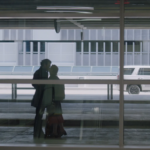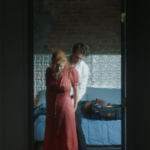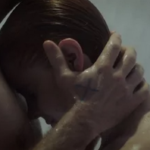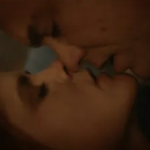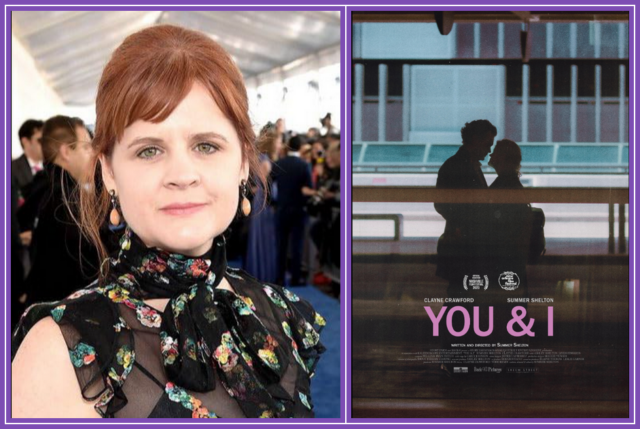
An in-depth exclusive conversation with the engaging and passionate writer, director, editor, and lead actor SUMMER SHELTON discussing YOU & I which marks her feature debut as director, writer, and editor. YOU & I is nothing short of emotional poignant beauty.
SYNOPSIS: YOU & I is a tender slice-of-life romance when an unexpected meeting brings former flames Sara and Joseph together for a weekend where they have an opportunity to explore the “What if’s?” that could have been with the one that got away.
SUMMER SHELTON is a filmmaker who draws you into her orbit with “hello”. Articulate in thought and purpose, she is not afraid to admit to filmmaking fears and trepidations with the multi-hat-wearing task of bringing YOU & I to life, nor is she afraid to open up about sticking to her guns to get what she wants and the personal depths she mined to deliver the emotional depth necessary both behind the lens and on camera with her performance as Sarah.

Highlighting the challenges of directing emotionally intense scenes and the importance of capturing specific moments, especially the ending, Summer explores the emotional complexity of reuniting with an ex, emphasizing maturity and reflection. Her visual style with its very specific visual grammar is influenced by her collaboration with cinematographer Bruce Thierry Cheung, notably with the use of handheld lensing, long takes and strategic framing that creates intimacy often with a voyeuristic distancing. Summer’s clear vision is evidenced with her very deliberate choice of color palettes with contrasting warm fall tones and cool blues.
Equally important to Summer with YOU & I is the music. Employing the talents of composer William Ron Frisch, the score not only complements but enhances the emotional narrative.
Bringing everything together in the editing process proved one of the most challenging aspects of the filmmaking process, perhaps even more so than delivering an emotionally powerful onscreen performance while also focusing on the technical directorial aspects of the production and concurrently giving 100% to her onscreen partner Clayne Crawford. The result is a dialogue-driven, mature and reflective weekend slice of life filled with intimacy and sensuality that in many respects harkens to similar emotions found within “The Bridges of Madison County.” A heartfelt emotional experience not to be missed.
As we dug deep into Summer’s filmmaking process with YOU & I, we discussed at length, among others:
- the film’s reflective nature and exploration of the emotional impact of reuniting with an ex, stemming from Summer’s own personal experiences and the desire to tell a story that captures the complexities of relationships; a truthful film that explores the nuances of relationships, including the idea of having it all and then not being able to, and the difficult choices people have to make
- the importance of having lived life and gained maturity in order to approach this story with the necessary emotional depth and objectivity
- character development and storytelling
- casting Clayne Crawford and their emotional collaboration as Sara and Joseph
- approaching the emotionally and physically intimate scenes
- the reliance on DP Bruce Thierry Cheung and his ability to provide an outside perspective helped capture the intimacy in a way that felt authentic and not exploitative
- approaching intimate scenes with a deep understanding of the characters and their relationship
- creating a sense of familiarity and comfort between the characters, making their connection feel genuine and relatable to the audience
- developing the visual grammar to draw the audience in
- creating a voyeuristic, intimate feel that would draw the audience in without feeling exploitative
- key guiding principle was to always keep something between the camera and the characters, at least until the ending sequence, as a means to build tension and a sense of intimacy while allowing the audience to feel like they were peeking in on these characters’ private moments
- handheld camerawork and strategic framing; shooting through doorways, windows, mirrors, etc. gives a sense of distance and voyeurism, while also allowing the camera to move in close on specific body parts or details when needed to heighten the emotional impact
- camera movements needed to match the emotional beats of the story; make the camera feel like another character, moving in closer during the more intimate moments and then pulling back to give the characters space
- the bathroom scene; pivotal scene in the third act with a carefully crafted visual tonal bandwidth to speak fort he characters; no dialogue; vulnerabiity
- developing the color palette; past, present, future versus warm and cool; differentiating the third act from the rest of the film
- collaborating with composer William Ryan Fritch
- crucial in enhancing the emotional tone of the film
- music as a thematic enhancer rather than a narrator, coming in with the story rather than before it
- instrumentation that would mimic the internal feelings and tension between the characters, such as the breathy quality of a pedal organ that could evoke a sense of heartbeat or pressure
- finding the right musical cues and placement within the film
- needledrops
- editing process and the learning curve for Summer
- working with time jumps and flashbacks within the story
- and more!
TAKE A LISTEN. . .
by debbie elias, Exclusive Interview 12/12/2024
YOU & I is streaming on digital platforms.

